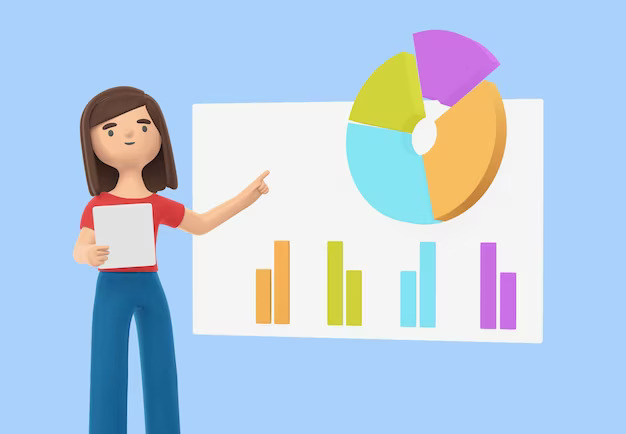The forex (foreign exchange) market is one of the world’s largest and most liquid financial markets. Daily currency trading involves trillions of dollars, making it a desirable market for investors wanting to profit from changes in exchange rates. A thorough awareness of the numerous elements that influence exchange rates is necessary to properly navigate the Forex market. Artificial intelligence (AI) has become a potent instrument in the financial sector in recent years, revolutionizing how investors and traders approach the markets. This article investigates the prospect of using AI to gain useful insights into the forex market. We will examine the main ways that artificial intelligence is being used to improve risk management, improve trading techniques, and give market participants a competitive edge. We will also discuss some of the difficulties and factors involved in incorporating AI into Forex trading.
Understanding the Role of AI in Forex Trading
Modern Forex trading is fundamentally changed by artificial intelligence (AI), which is revolutionizing how traders approach currency markets. Artificial intelligence (AI) systems can analyze enormous volumes of data, spot patterns, and make predictions based on that data by utilizing sophisticated algorithms and machine learning. This gives traders the chance to learn important lessons, improve their decision-making skills, and perhaps even uncover lucrative possibilities. To successfully utilize AI’s capabilities and traverse the volatile Forex market, it is essential to be aware of its constraints and hazards.
The Evolution of AI in Finance
The development of AI in finance has been revolutionary, reshaping the sector in numerous ways. AI, which was initially employed to automate repetitive chores, has quickly developed to address challenging financial issues. It has made it possible to create complex predictive models, better risk management programs, and more effective fraud detection systems. Virtual assistants and chatbots powered by AI have also improved customer service by personalizing advice and expediting conversations. As AI develops further, its incorporation into finance is anticipated to change procedures, increase effectiveness, and spur innovation in the next few years.
Key AI Technologies in Forex Trading
The forex trading industry has been completely transformed by AI technologies. Advanced sentiment analysis and prediction models are made possible by machine learning algorithms and natural language processing, enabling traders to make data-driven judgments. Automating routine operations with robotic process automation increases productivity and lowers mistake rates. Huge amounts of historical data may be analyzed by deep learning algorithms, which can then spot patterns and trends to make more accurate predictions. By utilizing intelligent algorithms that improve decision-making, optimize trading methods, and ultimately increase profitability, these important AI technologies give Forex traders a competitive edge.
How AI Enhances Forex Market Predictions
The reliability and accuracy of Forex market predictions have been greatly improved by artificial intelligence (AI), and MetaTrader 5 (MT5) has become a potent tool in this regard. MT5 uses AI algorithms to analyze enormous volumes of historical and real-time market data using machine learning and deep learning approaches. These computers are capable of seeing intricate patterns, trends, and correlations that can be challenging for human traders to recognize. By incorporating AI into the forecasting process, MT5 may produce more accurate projections, assisting traders in making decisions and reducing risk. Trading tactics have been revolutionized by the incorporation of AI and MT5 in Forex market predictions, allowing traders to grasp profitable opportunities and improve their overall performance. The following are some factors that improve AI for Forex market predictions:
- Improved Data Processing and Analysis: By making it possible to quickly and effectively analyze enormous amounts of historical and real-time market data, improved data processing and analysis considerably improve AI for forex market predictions. By making it possible to recognize intricate patterns, correlations, and trends that human traders might pass over, AI also improves forex market predictions. AI for forex market predictions is improved by giving more precise and timely predictions, helping traders make knowledgeable decisions, and optimizing their trading tactics for better results in the forex market.
- Real-time Market Sentiment Analysis: Real-time market sentiment data is essential for improving AI’s ability to predict the forex market, especially when used in conjunction with a demo account. AI systems can assess market sentiment and factor it into predictions by utilizing sentiment analysis and natural language processing techniques on news items and social media feeds. Trading performance on the forex market is improved thanks to the incorporation of a demo account, which enables traders to test and fine-tune their tactics based on sentiment-driven forecasts.
- Identifying Emerging Market Trends: A key component of improving AI for FX market predictions is the identification of emerging market trends. Huge amounts of historical and real-time market data can be analyzed by AI algorithms to spot small changes in market dynamics and new trends. Early trend recognition allows traders to maximize their chances of success in the forex market by making informed judgments and changing their trading tactics as necessary.
AI-powered Forex Trading Strategies
Artificial intelligence (AI)-powered Forex trading techniques make use of this technology to improve trading efficiency and decision-making. The following are included in these tactics:
- Algorithmic Trading and AI: AI and algorithmic trading work together to create a potent Forex trading method. AI can analyze market data, spot patterns, and automatically place trades based on predefined criteria by using sophisticated algorithms. By removing emotional biases and facilitating quick execution, algorithmic trading enables traders to efficiently and quickly take advantage of market opportunities. By continuously learning from data, reacting to market conditions, and optimizing trading techniques for better success in the volatile forex market, AI improves algorithmic trading.
- AI-driven Risk Management: An important part of an AI-powered Forex trading strategy is AI-driven risk management. AI may analyze several risk indicators, including market volatility, liquidity, and past performance, to produce projections that have been adjusted for risk. With the aid of AI-driven risk management strategies, traders can better manage risk in the Forex market by identifying potential risks, putting in place effective risk mitigation measures, and optimizing position sizing and portfolio allocation. This improves overall trading performance and guards against potential losses.
- Customizable AI Trading Bots: Artificial intelligence trading bots that may be customized help improve forex trading techniques. To make wise trading decisions, these cutting-edge algorithms examine market trends, historical data, and real-time indicators. Trading bots can be customized by traders to match their unique investment objectives, risk tolerance, and trading preferences. These bots serve as AI-powered forex trading systems that automate, fine-tune, and adapt, maximizing trading results in the volatile forex market.
Overcoming Challenges in AI-Driven Forex Trading
The financial markets have been revolutionized by AI-driven forex trading, but it also has several difficulties that must be resolved for best performance and risk management. The following are some of the main issues and limitations of AI-driven forex trading:
- Ensuring Data Quality and Security: In AI-driven FX trading, ensuring data security and quality presents a big hurdle. For precise analysis and forecasts, high-quality data from dependable sources is crucial. Data consistency, completeness, and cleanliness are essential considerations. Furthermore, it is crucial to guard against unauthorized access to and manipulation of sensitive financial data. To reduce risks and preserve the integrity and confidentiality of data in AI-driven forex trading systems, it is essential to implement strong data governance practices, safe data storage, encryption methods, and access controls.
- Addressing Ethical and Regulatory Concerns: In AI-driven FX trading, addressing ethical and regulatory issues is a difficult job. Utilizing AI algorithms entails ensuring fairness, and transparency, and preventing market manipulation. To ensure ethical and sustainable AI-driven trading practices in the financial markets, regulatory framework adherence, bias detection, and ethical standards development are essential.
- Balancing Human Expertise and AI Automation: In AI-driven FX trading, striking a balance between human skill and AI automation is a big problem. Human expertise is necessary for contextual understanding, decision-making, and responding to volatile market situations, even when AI algorithms provide speed and data-driven insights. To maximize trading techniques, utilize the benefits of both human and AI automation, and achieve consistent profitability in forex trading, it is essential to strike the correct balance between them.
Conclusion
In conclusion, utilizing AI to gain profitable insights from the forex market has the potential to completely transform trading methods. Traders may benefit from the insights and opportunities provided by AI’s capacity to analyze massive volumes of data, spot trends, and adapt to shifting market conditions. To fully realize the advantages of AI-driven forex trading, it is necessary to solve issues like data quality, interpretability, risk management, and ethical considerations. Traders may make better decisions, optimize tactics, and successfully navigate the complexity of the forex market by fusing the strengths of AI algorithms with human expertise.




